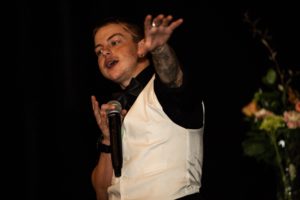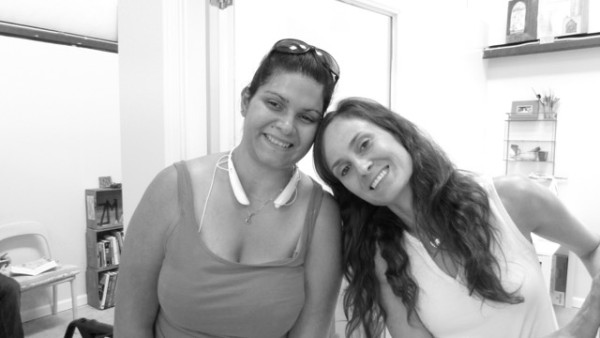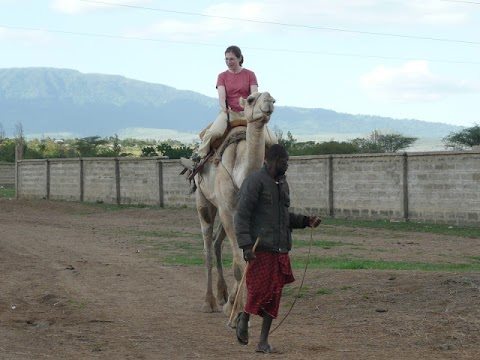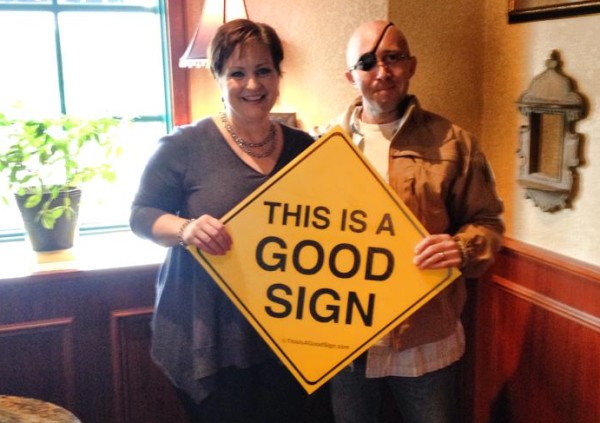
Tamika Smith
I’ve never had to write about myself. I find it much easier to tell the story of others – being real and compassionate is easy with others. You see the artistic talent, the progress, and the challenges. I’m much harder on myself and I don’t see the positive changes, only the challenges.
So where to start? Maybe the basics….my name is Tamika Smith. I have had several traumatic brain injuries throughout my life. The most notable of those injuries, the subdural hematoma, I received in a 4 car pile-up during the infamous Washington, DC traffic in 2000-2001. I woke from my surgery, seemingly perfect….talking, answering questions, and able to work from home and still maintain my high-profile job position. I even went back to work, after two weeks – weird hair and all (they only shaved part of my head, lovely really). But off I went, as if nothing had happened. Not knowing much about signs of trauma – over the years — I struggled, sensing something was just off or wrong. I never associated my TBI with any of the difficulties I was enduring in my daily life. Now I know those multiple clumsy falls, where I gained several concussions over the next few years, weren’t just me not being graceful or “moving too fast”, or “not paying attention”.
I chalked my temperament changes up to stress, my Attention Deficit Disorder (ADD), or Post Traumatic Stress (PTSD), and “behavioral issues”. After three concussions where I lost consciousness, struggling to maintain my senior job roles and responsibilities, intense pressure to perform at the level of my colleagues, I was unprepared for a layoff during the big economic downturn in 2010. Being laid off, unable to maintain my financial freedom through independent consulting jobs, I was faced with making some of the hardest decisions in my life. I used all my savings, my IRA, and sent out 100s of resumes. Unfortunately, these two years of self-sustainment led to the loss of my home and my job; needing to move away from my friends; and at 45 moving in with my mother – till things “got better” and “back to normal” I told myself. I’d soon find out there was no “back” to normal.
My mother, who recently retired from the Department of Rehabilitative Services (DARS) and took up counselling full-time, did some research and thought a DARS program for people with TBIs might be a source of help to get back on my feet, gain some new skills, and re-start my search for some type of job. Through DARS I was able to participate in a program called Rehab Without Walls, an intensive, at-home rehabilitation program to assess my TBI, current abilities, and potential vocational options.
For the first time, since 2000, I felt validated that the challenges I was facing had a name and a source. Learning: I had vestibular issues (no wonder I tripped over the dog and hit my head on the tub – twice!!); peripheral vision issues; daily migraines; and the challenges I needed to overcome with impaired Executive Functioning.
Executive function impairments can occur when you have trauma to the frontal and temporal lobe(s). They include, difficulty filtering your communications with others. The “switch”, if you will, that helps filter, monitor, and modulate my communication, language or writing abilities isn’t working properly. Additionally, you can have impairments in planning, new learning, word finding, processing of information, attention, etc. There isn’t any visible physical damage, no scar on my face, no motor skill issues, no missing limb, just some of the many indicators that someone has been through a trauma. I call my TBI the Ghost In My Brain – my brain doesn’t always tell me the truth about my environment, how and what I’m communicating, or why I feel the way I do sometimes. How do others trust you, if you can’t trust yourself? It’s an inner challenge that isn’t immediately noticed by others.
This means people make assumptions about what I should and shouldn’t be able to do or think. I fell under the radar, learning positive and negative coping skills to hide my perceived short-comings. Such as spending hours longer than my peers to accomplish the same tasks; receiving constructive criticism for “behavioral” and “interpersonal” issues; hearing that I just needed to change certain things; and try harder to do better. If someone asked what causes me the most emotional pain, I’d have to say: being perceived as a high-functioning adult, because nothing “shows”. The assumptions made by people and strangers I interact with on a daily basis; and leaving situations where I might be labeled as “difficult”, not making sense, “ always talking and not getting to the point”, or just plain “not good with people”.
Ironically, communication was my college degree and my career. As Vice President of Communications & Marketing, those executive functions were in play every day, working long hours, dealing with recalcitrant people, crisis management, editing, and writing as if these talents were just a part of who I was as a person. I could organize a report/story, outline key factors, and publish press releases, with speed and accuracy that sometimes even surprised me. I even led teams of highly skilled people at the top of their game. But that changed subtly, not all in one day like some TBIs, but over a long period of time, exacerbated by multiple head traumas. So after years of seemingly small changes, difficult challenges, and multiple job layoffs, the very skills I gained over 20 years, become the impairments I now had to live with going forward.
With long-term coping mechanisms to compensate for what I thought were my “personal failings — in February of this year — I finally was able to begin learning tools and skills to assist with managing my TBI impairments through rehabilitation. This didn’t mean, I was “fixed”, or that my challenges just disappeared. It did mean I could begin to heal emotionally – recognizing that the Ghost was now a part of my future.
Ironically, one of my Rehab Without Walls therapist was also a Board member of Small Victories. She thought having something joyful in my life would go a long way towards my healing and coping. She connected me with the Small Victories foundation and an opportunity to find some relief (more like some fun and enjoyment) in my life.
Of course, I didn’t think that at first. Personally, I was a little intimidated. I had no artistic abilities — I draw stick figures, stumble over my own two feet, can’t memorize anything, and have challenges listening and concentrating on complex tasks.
Thankfully, since I had no idea what I could do, Cindy Wright recommended I work with Jennifer in “music exploration” till I found a good fit. “What the heck is music exploration?” It sounded like taking a musical history class – “Where was this going, and how will I cope with another challenge?” I thought. So my negative self-talk began again.
Within a week, Cindy and Jennifer arrived at my house all excited and with a listening ear (remember my communication skills are impaired – so I probably babbled for 30 minutes before letting them even start) – my nervousness with meeting someone new, being asked to learn something new, and thinking I might be compared to others was nerve-wracking. “They teach talented people, right?” However, by the end of our meeting their enthusiasm made me take a deep breath and leap.
Well it seemed like a big leap to me at the beginning – “What about my memory impairments?, my temperament challenges — “How is this going to work?” my brain chattered back at me.
However, Jennifer was so thrilled to teach me that it was hard not be excited and filled with anticipation. We scheduled our first appointment.
Jennifer was so prepared that she had even created a folder with my name on it saying “Play, Listen, Learn, Create”. With an absence of other adjectives, I’ll say she seemed child-like in her enthusiasm each time I learned something new, or finished a task, that soon I began to look forward to my interaction with someone new and my ability to do something creative. I’ve always thought of creativity as an innate talent – something you have or you don’t.
To my surprise, and Jennifer’s delight (yes we danced around the piano with my puppy in tow – silly I know), in four lessons, I’d played four instruments and a duet on the piano; created my own music (albeit was with an oatmeal and cereal containers and spoons); learned what instruments I like and which ones I didn’t; and listened to the sounds of different types of music. Of course it was all very basic, but when others validate you as a person and you can find something to do by yourself that brings some relief to the isolation and happiness, it makes such a big difference.
I was scared and worried during my first meeting and first lesson. And I certainly wasn’t Mozart. However, I did have a new vigor for the future weeks ahead and learning something new. Even my family noted my different temperament, how I seemed more relaxed, and smiled more. Now that’s a vote of confidence when you feel like you’ve failed at the things that matter.
Ultimately, I chose piano! I couldn’t imagine learning without Jennifer, her teaching was a part of what I looked forward to – so with my rented electronic piano from Small Victories (yeah!) and weekly lessons from Jennifer, I can now say I’ve memorized my first piano song – and one I love hearing (though my mother may be tired of hearing me practice it over and over again). I feel so accomplished and yes, a little bit talented!
I heard Derrick Wright say, after numerous years, he found his “New Normal”. Unfortunately, I’m still in the grieving stages. I’m still grieving the Me I lost; feeling the anger and depression, thinking I can’t seem to fit-in anywhere; and sensing that I make people uncomfortable or they just don’t like being around me.
I have, however, accepted that these feelings are typical of survivors of TBIs, and will dissipate in time with help from friends and family. So I haven’t quite reached my New Normal, but I’m hopeful– through Small Victories — to find some joy in life and then continue with my search for MY New Normal, whatever that might be. My Ghost and I will try to share this new side of life.













Recent Comments